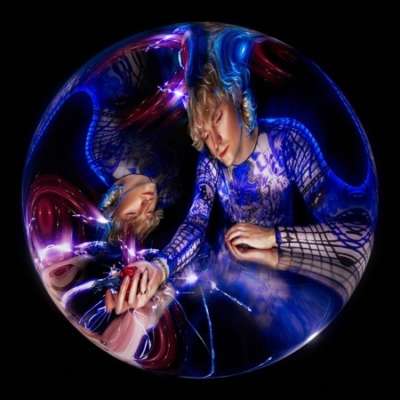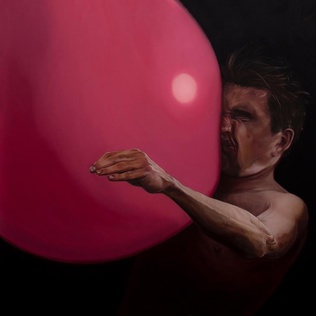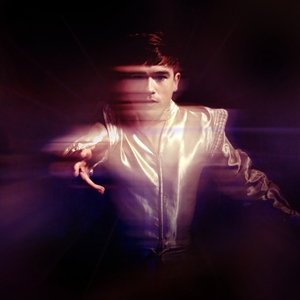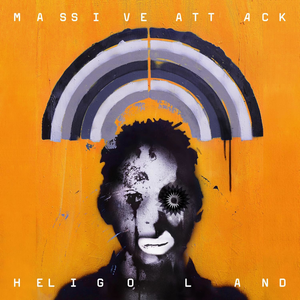Coldplay's debut record, Parachutes, turns 20 today (well the day I started writing this), and is an album dear to my heart despite the general consensus that it is fairly derivative of the likes of Radiohead and U2 and not even the most 'definitive' Coldplay record. There's just something I find so entrancing by the tone and atmosphere of the record, and the songwriting on here is top notch even if it is entirely straightforward and conventional.
Parachutes is one of those records that seems to work in almost any context for me. It's moody and emotional, yet its also joyous and hopeful. Its gentle and deep, but also light and summery. It works equally well on long summer evening as a cold, damp winter night. I can put it on to relax to, be uplifted by, or contemplate with. Each of the ten tracks have a darkness to them, yet they all are spun in such a way that there's always a point of hope in them. It's so incredibly cathartic and versatile. I also find the straightforwardness of the record one of its biggest strengths, maintaining this moody yet warm acoustic rock throughout with only a slight ebb and flow of more energetic electric moments. It is also a trim 41 minutes with absolutely no filler.
The record opens with the incredibly moody and existential Don't Panic. The track is just over 2 minutes and features pretty apocalyptic lyrics which I have always took to be about climate change, but like the majority of Chris Martin's lyrics (especially in the early days of Coldplay) they are general but emotive enough that they don't have to be. It gives Don't Panic, and the rest of the songs on Parachutes, so much more strength than some of the other emotional soft rock bands from the 2000's. The track, also like a lot on here, spins itself on its head in the last verse; in this case Martin sings about how everybody has someone to lean on and we can make it through together.
Following this is Shiver, which is my favourite Coldplay song across their entire discography. The track starts off very reserved and gentle, before exploding into the first chorus. Martin's lyrics about an unrequited love are so apologetically earnest yet pure and wholesome. There's no tragic angst or self loathing like in something like Radiohead's Creep, and the way the electric guitar wails at the end alongside Martin's howls that he will wait for this person, and wait for them to notice him, just really hits the mark for me. It's just one of those songs.
It is also as about as heavy as the album gets, after this point settling back into the acoustic groove with the electric guitars only really used sparingly for texture more than melody. Spies is just as paranoid as Don't Panic, although it is a more drawn out song which allows you to fall into its eery nature. It also flips itself over and picks its self up towards the end. Sparks is such a gentle piano led track, where Martin refers to 'seeing sparks' as a real special connection with the person this song is written about. He addresses past mistakes that have hurt this person, and how he wants to make things better because of how special this connection is. I remember putting it on a few years ago, as it was snowing at night outside my window. It has that warm gentle atmosphere.
There are two other piano led songs on the record, Trouble, and the closer, Everything's Not Lost. Trouble is perhaps the most downtrodden song on the record, as it lacks the positive spin that the rest of the tracks have in their closing moments. The simple piano riff sets the darker tone as Martin alludes to being caught in traps and spider's webs that he can't get out of, and that he didn't mean to cause anyone else trouble. Apparently the song is just an apology to the rest of the band about his sometimes controlling nature in the studio, but it feels much darker and more serious than that. It anchors the album in a way, showing that sometimes you can't just say "things will get better" to every problem you face. Everything's Not Lost is the opposite, and sets the blueprint for the big optimistic climax moment in most future Coldplay albums. Unlike some of those future efforts it remains very sweet and genuine with the focus remaining on Martin's vocals and the uplifting piano notes. None of the overblown production and multi-tracked choral vocals that make something like Up&Up feel pretty tacky. There is a hidden song titled Life Is For Living at the end of Everything's Not Lost and it is a nice little ditty which feels like an appropriate coda for the track and the record as a whole.
In between Trouble and Everything's Not Lost, the record becomes its most mellow and malaise like. The Title track is 45 seconds of acoustic summery bliss, and High Speed feels like speeding along in a convertible on a hot summers day. The distant atmospheric swells of electric guitar gives the song a more driving pace, despite the song being one of the most carefree on the record. This is followed p by We Never Change, a super slow and reserved song where Martin details his desire for a simple life living with his friends, free of life's troubles, but acknowledges that some things will never change, and there will always be new challenges to face.
The only song I have yet to mention is the band's breakout, global smash single, Yellow. That's because you've definitely already heard it 1000 times. Yes it is overplayed, and yes if you think about the lyrics too much it starts to feel like nonsense. But you can really feel the emotion in Martin's voice and can't help but be moved by it, and it feels far more genuine and less calculated than some of the band's future emotional singalong anthems.
Parachutes is just one of those records for me. I acknowledge that it doesn't do anything all that interesting or unique from the grand objective view of the history of rock, and that the band's follow up, A Rush Of Blood To The Head, has a more unique identity. However every single moment on the album just works for me, I can enjoy every single second of it when I'm in a variety of moods.
Top Tracks: Don't Panic, Shiver, Spies, Sparks, Yellow, Trouble, Parachutes, High Speed, We Never Change, Everything's Not Lost
10/10


.png)








.png)





